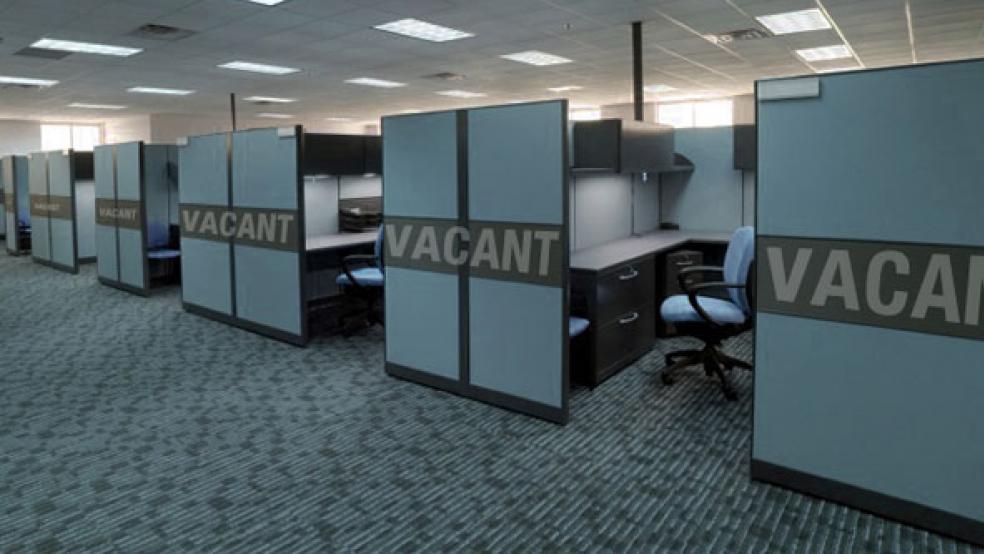House Minority Leader John Boehner of Ohio and other Republicans have been claiming for months that uncertainty about future taxes and regulation, and worry about budget deficits, is what's keeping small businesses from investing and hiring more workers.
Boehner said recently on the CBS program “Face the Nation” that "we need to remove the uncertainty that clouds our economy from all these new policies and programs being enacted by this Congress, and we need to provide certainty in terms of what the tax rates are going to be."
In fact, the argument is largely specious. What's keeping small business owners from investing and hiring is primarily poor sales.
That's quite clear from the long-running monthly surveys of the National Federation of Independent Business. Last month, nearly three-fourths of the "small and independent" business owners responding said it is not a good time to expand, and most of that group cited the weak economy as the main reason, the NFIB report said. Less than a fifth said the "political climate" was a serious source of uncertainty. "What businesses need are customers, giving them a reason to hire and make capital expenditures and borrow to support those activities," the summary said.
is their biggest concern — 22 percent — has gone up over
the past couple of years, but only by a few percentage points.
As for taxes, the share of owners saying that uncertainty over future tax policy is their biggest concern — 22 percent — has gone up over the past couple of years, but only by a few percentage points. The reality is that taxes are always a worry for small business owners.
Besides, as Boehner admits, only a tiny share of the owners would face income tax increases if President Obama gets his way and the Bush tax cuts are extended beyond the end of the year for couples with taxable incomes of less than $250,000 and individuals below $200,000. The congressional Joint Committee on Taxation estimates that only about 3 percent of owners whose business income is reported on their personal tax returns — mostly so-called sole proprietors — have income above those thresholds. But they account for about half of all small business income, as Boehner noted. In other words, all the hand wringing about higher taxes hurting most small businesses is a canard crafted to distract attention from the GOP's refusal to accept the need for more measures to stimulate demand and create jobs.
Of course, that doesn't mean small business owners aren't unhappy about policies coming out of Washington. Temple University economist William C. Dunkelberg, who conducts the NFIB survey, said the administration's economic policies "made little sense in terms of dealing with the main problems."
Dunkelberg said the economy is set to grow slowly, but added, "There is always the risk of another serious policy mistake in Washington or other events that will cause consumers to save even more and defer purchases."
The NFIB is backing the Republican effort to make all the Bush tax cuts permanent. And the organization also wants to roll back some new regulations, such as the one that would require all companies to report to the Internal Revenue Service payments to suppliers that exceed $600 a year. That was a provision to help fund health care reform by reducing the amount of unreported income received by businesses.
available … Not surprisingly, labor costs also are not a current problem.
Some 15 percent of survey respondents said last month that government regulation is their single most important problem, but that share hovered generally above 10 percent throughout most the Bush presidency. So like taxes, the increment isn't large enough to be responsible of the lack of investment and hiring.
Meanwhile, some other concerns that have loomed large in the past are greatly diminished, according to the survey results. For example, with joblessness high, owners have few complaints about the quality of the workers available. In the tight labor markets of the '90s, that was the most important problem for nearly a fourth of the owners. Not surprisingly, labor costs also are not a current problem.
Moreover, the survey paints a radically different picture of the availability of credit for small businesses than is commonly seen. "Overall, 91 percent of the owners reported all their credit needs met or they did not want to borrow," the NFIB summary of the results said. "Only 4 percent cited credit availability as their top business problem." And the average actual interest rate paid on short-term loans was only 6.3 percent, down from 9.2 percent three summers ago just before the financial crisis began.
The NFIB is solidly in the Republican camp, but its members' assessments of the economic situation they have to deal with day by day provide strong evidence that the notion that the biggest problem is uncertainty about government policies is badly mistaken.





